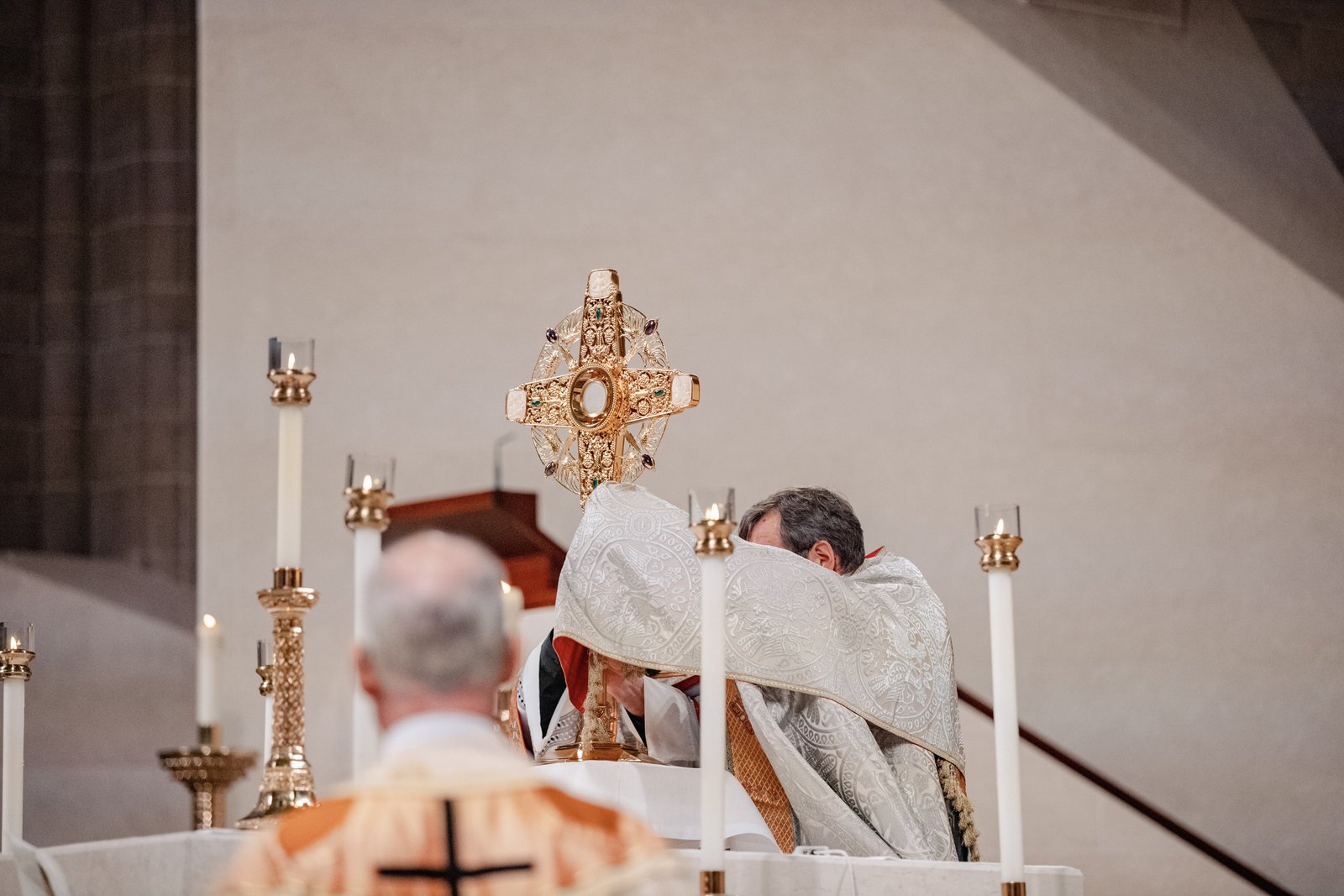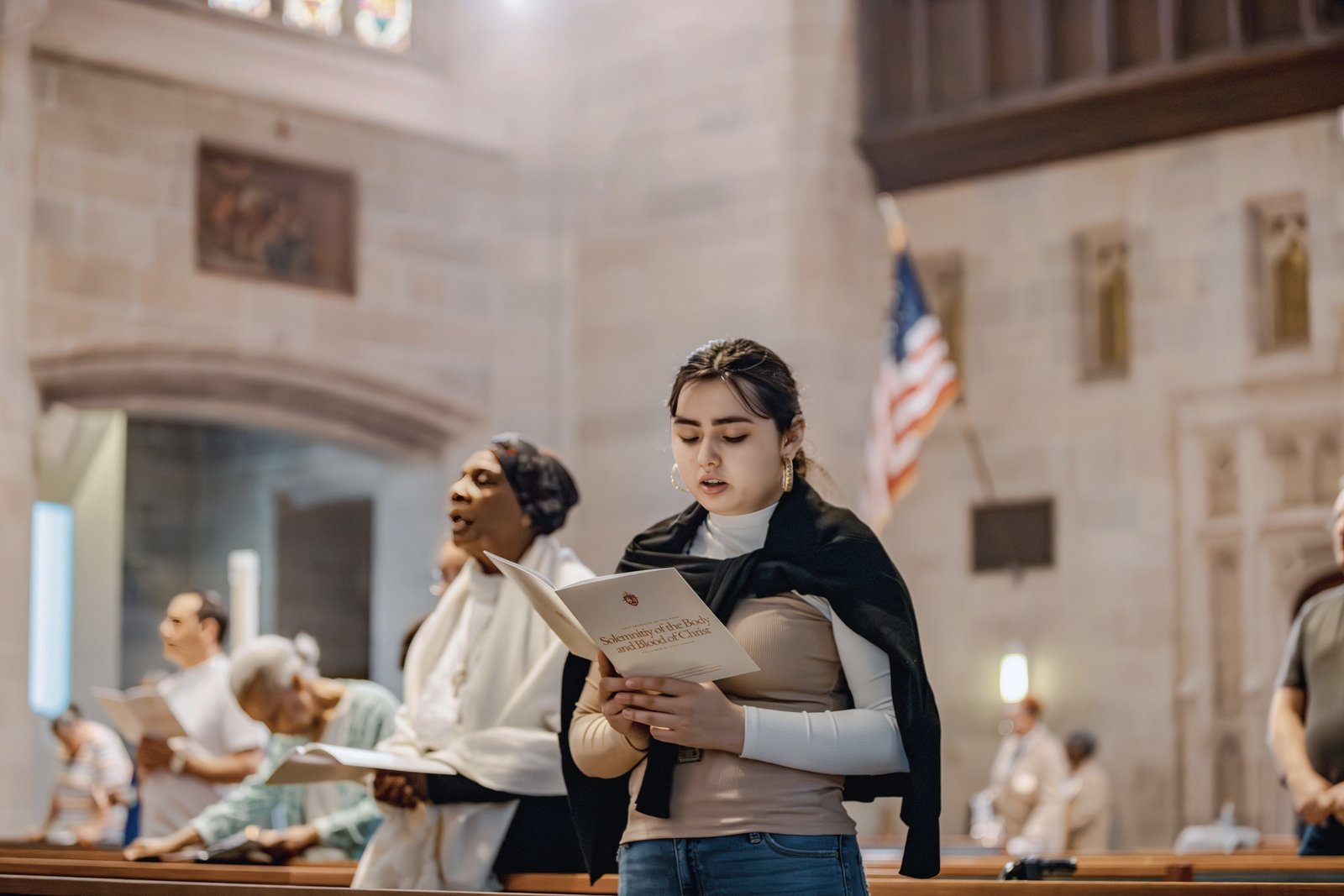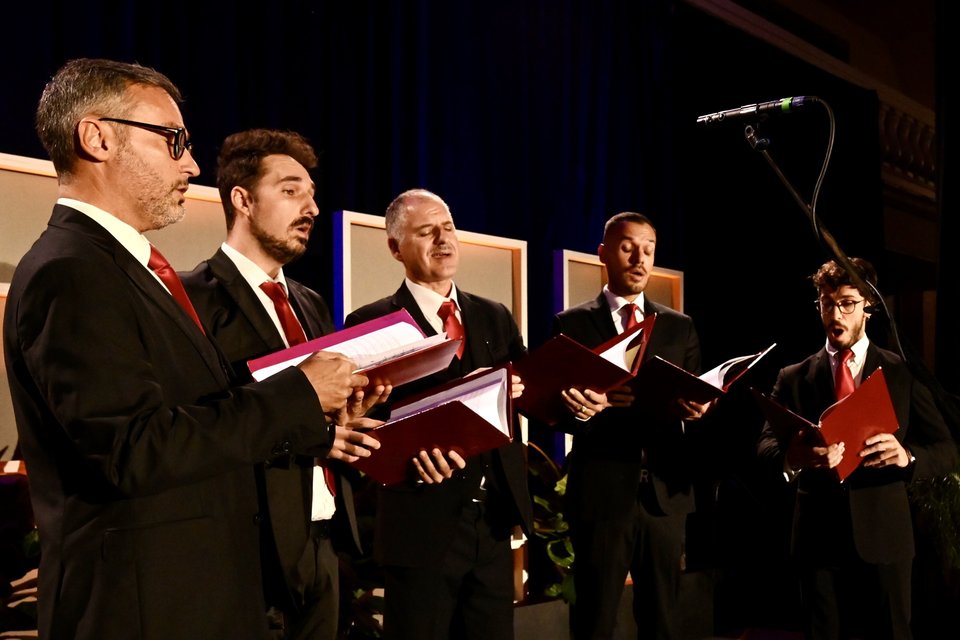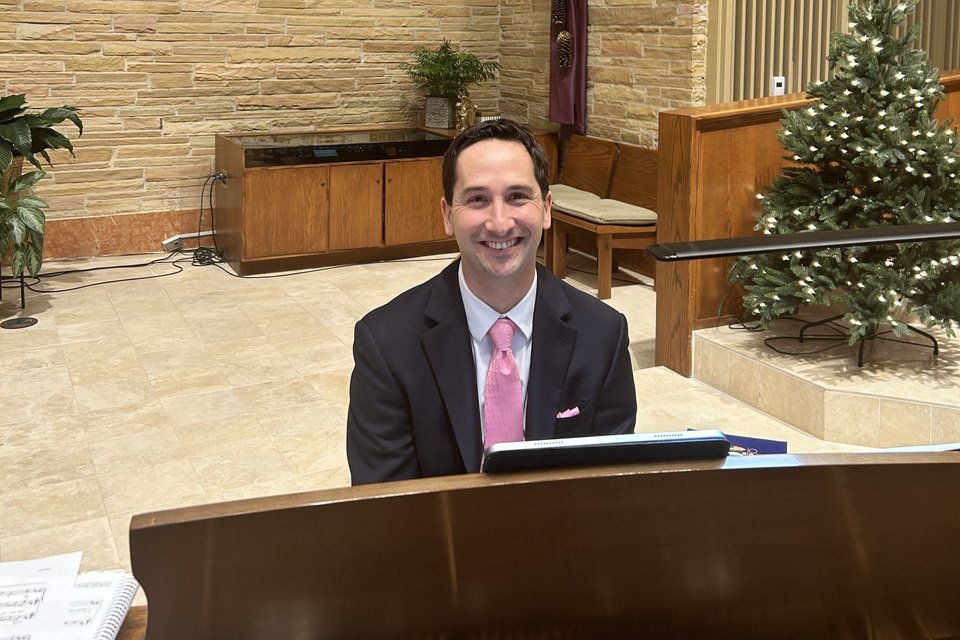More than 60 entries submitted from across country to Archdiocese of Detroit's contest, aimed at finding next 'Gift of Finest Wheat'
DETROIT — Two musicians — one from St. Louis, the other from Phoenix — were recognized for their winning entries in the Archdiocese of Detroit’s Eucharistic hymn composition contest, among more than 60 entries submitted nationwide.
Orin Johnson, a composer from the Archdiocese of St. Louis, and Kathleen Pluth, a hymn writer from the Diocese of Phoenix, each were awarded $1,000 for their hymns, which were inspired by the U.S. bishops’ National Eucharistic Revival.
Both hymns, “True Presence Now Among Us,” by Johnson, and “God Our Father, Ever Dwelling,” by Pluth, were performed for the first time June 11 at the Cathedral of the Most Blessed Sacrament during the feast of Corpus Christi.
The hymns contest was conceived as a way for the Archdiocese of Detroit to support the National Eucharistic Revival, which is now in its second year, devoted to parishes, said Horst Buchholz, Ph.D., director of sacred music for the archdiocese.
“Interestingly enough, there was a similar contest that the USCCB sponsored, but ours was a little earlier than theirs,” Buchholz told Detroit Catholic. “Last year, we had the idea because we wanted to do something to support the Eucharistic Revival.”
The contest, which was sponsored by Corporate Travel Service, was publicized nationwide and called for entries in two categories — original compositions, including both tunes and text, and text-only hymns that utilized familiar tunes in the public domain. The contest was judged by the archdiocese’s Academy of Sacred Music.
“We had entries from California to Birmingham, Alabama,” Buchholz said. “Entries were judged anonymously, so we just saw the musical compositions and texts.”
Johnson’s entry, “True Presence Now Among Us,” won for best original composition, and while Pluth’s hymn, “God Our Father, Ever Dwelling,” won for best original text, set to the tune of familiar hymns such as “Love Divine, All Loves Excelling.”
Johnson, who serves as director of sacred music and liturgy at St. Margaret of Scotland Parish in St. Louis, learned about the hymn composition contest through Facebook.
Johnson had composed the tune during a moment of inspiration about a year and a half earlier, “but it had just sat on the shelf, honestly,” he said. The original tune borrowed from a public domain text, but when Johnson heard about the contest, he decided to return to the tune to create an original hymn, based on an ancient Latin text originally composed by St. Thomas Aquinas.
“A favorite text and moment of mine has always been the transfer of the Blessed Sacrament (to the altar of repose) at the end of Holy Thursday Mass, so I turned my attention to the Pange Lingua Gloriosi, and wrote a short text borrowing some of the imagery and themes from St. Thomas Aquinas’ text,” Johnson said.

“True Presence Now Among Us” extols the glory of God through the gift of the Eucharist, which is the “ransom paid for sinners, redemption, sacrifice,” according to the hymn’s text.
“I think the set of words that landed in my head first was actually the end of verse two, which says, ‘this sacrifice, this banquet, His presence in the world,’” Johnson said. “There are people who, when they ponder the Mass, tend to think it’s one or the other — it’s a banquet or it’s a sacrifice. It’s so important to me, and to all of us in the Church, that’s it’s both things at the same time.”
Pluth, an independent hymn writer and translator based in Phoenix, said the text of her hymn, “God Our Father, Ever Dwelling,” is “very Trinitarian.”
“The first verse focuses on God the Father, the second one on Jesus Christ, the son of God, and the third verse is about the Holy Spirit,” Pluth said. “The fourth verse brings the Trinity together. It’s very kerygmatic — it’s telling the basic story of salvation.”
Pluth said the Trinitarian focus on the hymn draws out the significance of the Eucharist, “which is really focused on the Son.”
“But all of the Trinity have their roles in the Eucharist,” Pluth said. To be able to express those two mysteries together, the Trinity and the Eucharist, was what I had in mind from the very beginning.”
In addition to her award-winning hymn written for the Archdiocese of Detroit’s contest, Pluth also wrote the official hymn that will be used for the National Eucharistic Revival, “Let the Earth Acclaim Christ Jesus,” which was announced June 15. That hymn will be performed during the 2024 National Eucharistic Congress in Indianapolis.

John Hale, president of Corporate Travel Service, said the company was proud to sponsor the development of sacred music in the Archdiocese of Detroit, which ultimately serves to draw people closer to Jesus in the holy Eucharist.
“At Corporate Travel, we are in a privileged position to witness firsthand how sacred music deepens faith, whether it is through our events like The Story of God at Carnegie Hall or a Sistine Chapel Choir performance tour to the United States,” said John Hale, president of Corporate Travel. “These moments inspired us to sponsor the Archdiocese of Detroit’s sacred hymn competition, which is such a worthwhile initiative to express the beauty of our faith. It is especially timely with the Eucharistic Revival as music is an incredible tool for evangelization.”
Buchholz likened the archdiocese’s contest to a similar contest held prior to the National Eucharistic Congress in Philadelphia in 1976, which produced the popular and still widely sung hymn, “Gift of Finest Wheat.”
“That song has been sung ever since in almost every parish in the United States,” Buchholz said. “What we wanted was to come up with the next ‘Gift of Finest Wheat.’”
Buchholz said Johnson and Pluth will retain the copyright to both hymns, with the caveat that the Archdiocese of Detroit may use the hymns during the duration of the Eucharistic Revival.
Inquire about the winning hymns
To learn more or to use Pluth's or Johnson's original hymns, composed for the National Eucharistic Revival, in your parish, email sacredmusic@aod.org or call (313) 883-2861.
Copy Permalink
Sacred music














